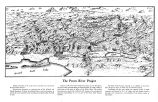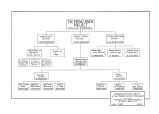| OCR Text |
Show •'• :•"• ::/:':;:- ^ iS^ trfe^ • .. ;• ::. : '•. •• • '.;•••' "':'-•;: .. :" K ' ! - i--; i: l^! ! i M::!::/ N:; ;; M:: i:! i::: IE ; = i-^ 1 :: ..•- lllil'SlllSij! ?;# ::; C3- • H E* fpi :.••;!•;?; ••••••••••'•••••• .••••:. -- Xdff.. •••:, ^:;. v: § § 1J § § jlSisfjijiaSi'gS; •••' U? :;~: ,• .. |;,' v" r7:;'!: Hi:'; s| is. ' V'\ l £*^:; ii^*: i;: '•^ « >, ri,;-:;.'': f- v:* i;::;:::: v!-/;:-; ^;;'' 1ft^ fft'^"^:': T: v/. 5. L. Tribune 2. " Plowing time." This Utah farm is typical of those still served by Pioneer canals. streams which enter the Valley from the east, canals which are still used by the prosperous farming communities and suburban areas to the south and southeast of Salt Lake City. The " Big Ditch," for example, was begun during 1848, the " Big Cottonwood Tanner Ditch" and the " Green Ditch" that same year, the " Walker Ditch" during 1849 and the " Hill Ditch" in 1851. These ditches were not financed by bond issues nor were they constructed by contract or by machinery, but by labor of the people themselves, those who used the waters thus diverted and controlled upon their own lands. FIRST APPEARENCE OF " THE WATER PROBLEM" By 1860 practically all of the waters of the mountain streams had been appropriated for agricultural uses and for use by the families of those largely dependent upon farming for their livelihood. The municipality itself was almost entirely dependent upon City Creek and very soon the need for the further development of water resources was recognized. UTAH LAKE DEVELOPMENT SUGGESTED It is recorded in the minutes of the Board of Aldermen of " Great Salt1 Lake City" that on August 9, 1864, " Alderman Sheets reported that he had inquired into the propriety and practicability of introducing a greater supply of water to meet the pressing wants of the citizens in watering their lots. He said that the plan of obtaining water by boring artesian wells, though an untried experiment in these valleys, was an object worthy the trial of our enterprising citizens, and should such a measure be adopted successfully by the leading men in the city and vicinity, three or four wells in suitable localities would save the orchards and gardens from serious losses now sustained by our citizens. A general feeling was awakened for the accomplishment of so desirable an object. " He also reported that the waters of the Jordan River were almost entirely unavailable for irrigation purposes, but might be rendered available by raising a dam at its headwaters and bringing a canal from thence around to the city, which, though requiring a great expenditure, would be attended with great results in saving our gardens in times of drouth. He suggested the propriety of having a mass meeting called and adopting such measures by the voice of the people favorable to such a project, for the getting up of suitable plans and of deciding upon the mode of raising funds by tax or otherwise for the accomplishment of the work." |





















































































































































